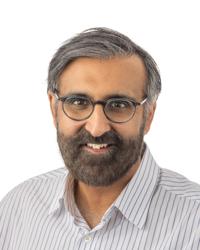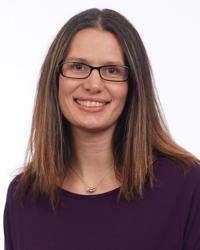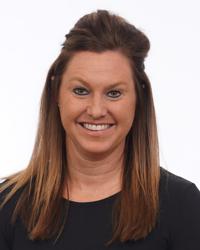UnityPoint Health Allen Hospital - Community Cancer Center

Information
Number of patients waiting reflects the current number of patients waiting to be seen. This number changes frequently and is not exact.
Hours of Operation
- Monday: 8:00 AM - 4:30 PM
- Tuesday: 8:00 AM - 4:30 PM
- Wednesday: 8:00 AM - 4:30 PM
- Thursday: 8:00 AM - 4:30 PM
- Friday: 8:00 AM - 12:00 PM
- Saturday: Closed
- Sunday: Closed
Fighting cancer is a journey. You are not on that path alone.
At Allen Hospital’s Community Cancer Center, local doctors, nurses and support personnel have teamed up with one goal in mind – to help you win your fight against cancer. Like a community, we're with you all the way, providing exceptional cancer care that places you at the center of all we do.
Surrounding You with Care
Our team concept means your physicians, nurses and support staff work together to attack cancer from every angle with coordinated, comprehensive care.
Through the Community Cancer Center and Allen Hospital, you have access to the area's leading cancer experts. In addition to the specialized doctors leading your team, you also benefit from the support of a dedicated care coordinator who makes sure your unique needs are met – from diagnosis, through treatment and into survivorship. Your coordinator communicates with all team members involved with your care and provides you and your loved ones with individualized education and support.
Support Groups and Workshops
Cancer Survivorship 101
Survivorship 101 is a free nine-week course for cancer survivors and their caregivers, presented by the Community Cancer Center and Allen Hospital. The course provides practical guidance for your next steps, including research-based advice on topics like building resilience, nutrition, exercise and reducing anxiety.
Survivors of any type of cancer who have completed their curative intent treatment are welcome to register. It doesn’t matter when or where treatment was completed.
Courses are typically held twice a year – check for upcoming classes. To learn more or to be added to a waiting list, contact a social worker at (319) 233-2701.
Survivorship Clinic Visits
As you finish cancer treatment, you might be wondering: What happens next? The answer is different for everyone. We're here for every survivor – to help you to return to everyday life while adjusting to the effects of cancer and its treatment.
Your Survivorship Clinic visit is typically scheduled 5-7 weeks after completing treatment, but it can be scheduled up to a year after your diagnosis. It isn't intended to replace the regular follow-up visits with your cancer practitioner for ongoing monitoring and care.
During your visit, your cancer practitioner will:
- Review your cancer history, including the type of cancer you had and the treatment(s) you completed. This could include surgery, chemotherapy, radiation, etc.
- Discuss any ongoing treatment for your cancer.
- Help you learn about any potential long-term or late effects of your treatment. Many people expect to experience side effects during treatment. It's often surprising to survivors that some side effects may linger after treatment or that other side effects may develop even months or years later.
- Discuss possible psychological affects (relationships, sexual functioning, work and parenting) and the potential need for psychological support.
- Discuss possible insurance, employment, and financial consequences, as well as referrals to appropriate counseling as necessary.
- Provide recommendations for follow-up care, which may include check-ups and/or medical tests to watch for any signs of your cancer returning or any new cancer appearing.
- Help you enjoy life by learning about healthy habits and behaviors that can help you regain or build strength, reduce side effects, reduce the risks of cancer coming back or developing new cancer.
- Provide you with recommendations for cancer-related resources.
In addition, you may be referred to other specialists or services based on treatment effects you're experiencing. This could include:
- Physical/occupational therapy for rehabilitation or neuropathy
- Lymphedema therapist
- Pelvic floor health therapist
- Sexual health counselor or gynecology/urology for sexual dysfunction
- Dietitian
- Social worker
- Mental health counseling
- Cardiology consult
- Genetic counseling/testing

Gilda's Club Support Groups and Resources
The Community Cancer Center is fortunate to provide access to expanded programming from the Cancer Support Community – Iowa and NW Illinois at Gilda’s Club, a free nonprofit named in memory of Gilda Radner, a Saturday Night Live actress and comedienne who succumbed to ovarian cancer in 1989.
Thanks to this partnership, we actively connect patients and community members to helpful resources, along with monthly support groups and workshops. Wondering how to talk to the kids about cancer? We recommend the wonderful book What Do I Tell the Kids and can provide a hard copy in our cancer center upon request.
Check out the links below for the current support groups calendar. To learn more about our cancer support groups and helpful resources, contact our Community Cancer Center.
Get Started
Once you become a participant, you can participate at no cost in Gilda’s Club community of support—whether in groups, educational workshops, healthy lifestyle activities, social connections, or a combination of everything.
Cancer Support Groups
Join free, professionally led support groups for those with cancer, as well as for their friends and family of all ages. Support groups are available for adults diagnosed with any type of cancer or in survivorship. Registration is required.
Lifeline Online Support
Find cancer support at your fingertips. Through discussion boards and private websites, cancer patients and caregivers can connect with their community and others like them to reduce stress, anxiety and isolation.
Breast Cancer Care You Can Count On
Breast cancer is the most common cancer among American women, except for skin cancers. About 1 in 8 (12%) of women in the US will develop invasive breast cancer during their lifetime. If you are diagnosed with breast cancer, it is important to discuss your treatment options with your cancer care team. At the Community Cancer Center, we're here to help with access the latest in breast cancer treatment and to support you on every step of the journey. Many factors are linked to breast cancer risk. Some risk factors you can't change. For example, the two most common risk factors for breast cancer, being a woman and getting older, are not things you can change. Other factors you may be able to control. For example, leading a healthy lifestyle by getting regular physical activity, eating health, maintaining a healthy body weight, and limiting alcohol intake may help lower your chances of getting breast cancer.
Understanding which factors may affect your risk can help you work with your health care provider to address any concerns you may have and develop a breast cancer screening plan that is right for you.
At UnityPoint Health, our full spectrum of services includes everything needed to accurately diagnose and treat breast cancer – from the latest cancer research to procedures like mammograms, MRIs, chemotherapy and breast surgery.
Genetic Testing
The Community Cancer Center partners with the Helen G. Nassif Community Cancer Center to provide a Genetics and Risk Assessment Clinic. The clinic provides counseling, genetic testing and surveillance recommendations to help you determine if you are at risk for a hereditary cancer syndrome.
Heredity can play an important role in the development of certain cancers. Medical research has increased understanding of the link between genetics and cancer. We now know that certain types of cancer are more likely to run in families, such as melanoma, breast, ovarian, uterine, colon, pancreatic, stomach, prostate, and some endocrine tumors.
Alterations, or mutations, in certain genes may increase a person's risk of developing cancer over their lifetime. Genetics alone do not determine a person's risk; many other factors influence the development of cancer, including diet, exercise, and exposure to environmental factors, such as cigarette smoke and tanning beds.
While genetic testing is a powerful tool in preventing cancer, it is not the only tool. Some people with a genetic risk may never develop cancer, while others without a genetic risk do. It is important to reduce your cancer risk in all areas of your life.
If you are concerned about your personal or family history, a risk assessment may be helpful. Family history of a disease does not always mean your risk is high, but genetic testing may be able to help you understand your individual risk factors.
Unlike most other medical tests, hereditary genetic tests can reveal information not only about the person being tested but also about that person's relatives. The presence of a harmful genetic mutation in one family member makes it more likely that other blood relatives may also carry the same mutation. Our genetic nurse practitioners will help you understand how your test results may affect other family members and how to talk to your family about your test results.
If you choose to have genetic testing, most health insurance companies cover part or all of the testing costs. Insurance coverage is always verified before proceeding with genetic testing.
Four Components to a Genetic Risk Assessment
Food Pantry for Patients Facing Food Insecurity
Going through cancer treatment is challenging. Especially for individuals with a lack of nutritious food. That’s why our Community Cancer Center has created an on-site food pantry. Oncology patients with food insecurity receive food kits for each member of their household. The kits are made possible thanks to funds from grants, team member food drives and generous donors.
Would you like to donate?
Contact the Community Cancer Center at (319) 233-2701.
Our Providers

Bilal Rahim, MD
Medical Oncology, Hematology Oncology

Pawina Subedi, MD
Medical Oncology, Hematology Oncology


Zoe Schult, ARNP
Hematology Oncology, Medical Oncology

Julie Gleason, ARNP
Medical Oncology, Hematology Oncology

Mattie Testroet, ARNP
Medical Oncology, Hematology Oncology
-
Cancer Care
Find the highest quality care from our experienced team of oncology and cancer specialists at UnityPoint Health.Cancer Care
-
Genetic Testing & Counseling
Genetic counseling provides a time to meet with a genetic counselor to evaluate your personal and family medical histories, perform risk assessments, and order genetic testing.Genetic Testing & Counseling
